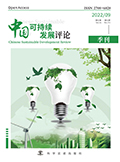

ESG指环境 (Environmental) 、社会 (Social) 和公司治理 (Governance) 三个方面的可持续发展因素, 是评估和衡量企业在环境、社会和治理方面表现和影响的框架。近年来, 中国的ESG实践和发展受到越来越多的关注和推动。然而, 与欧美先进国家相对成熟的ESG披露制度和评级体系相比, 中国的ESG体系仍存在信息披露不全面、评级标准不统一的问题。本文分析了我国赋能行业和带动行业的碳排放水平及ESG披露情况。并以赋能行业中的石油石化、食品饮料、纺织服饰、汽车制造和电子电器为代表, 分析了国内外相应行业的企业ESG报告的差异, 阐明了ESG评级的关键指标。在此基础上, 本研究制定了符合中国国情的分行业ESG评级指标矩阵, 并重点强调了“E”的权重, 以突出企业ESG在双碳目标和循环经济中所能做的贡献, 为建立科学、系统的ESG体系提供了借鉴。该评级指标矩阵有助于解决中国ESG实践中信息披露不全面和评级标准不统一的问题, 促进中国赋能行业在可持续发展方面取得更好的成果。
ESG refers to the three sustainability factors of Environmental, Social, and Governance, and is a framework for assessing and measuring corporate's performance and impact in these three areas. China's ESG practices and development have received increasing attention and promotion in recent years. However, compared to the relatively mature ESG disclosure and rating systems in advanced countries in Europe and the United States, China's ESG system still faces challenges such as incomplete information disclosure and inconsistent rating standards. This paper focuses on analyzing the carbon emission levels and ESG disclosure within China's enabling and driving industries. It also takes petroleum and petrochemical, food and beverage, textile and apparel, automobile manufacturing, and electronic and electrical appliances in the enabling industries as representatives analyzes the differences in ESG reports between domestic and foreign enterprises in the corresponding industries, and clarifies the key indicators for ESG ratings. Based on these findings, this study formulates an industry-specific ESG rating index matrix that is tailored to China's national conditions, and emphasizes the weight of “E” to highlight the contribution of corporate ESG to the dual-carbon goal and circular economy, providing a valuable reference for The rating index matrix helps to solve the problems of incomplete information disclosure and inconsistent rating standards in China's ESG practice and promotes the enabling industry in China to achieve better results in sustainable development.